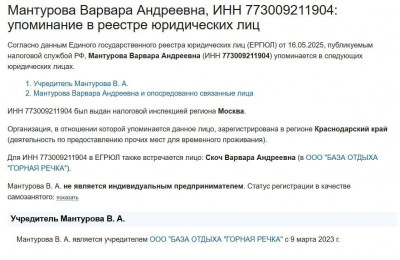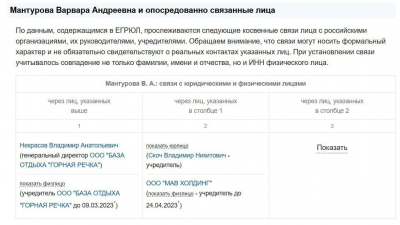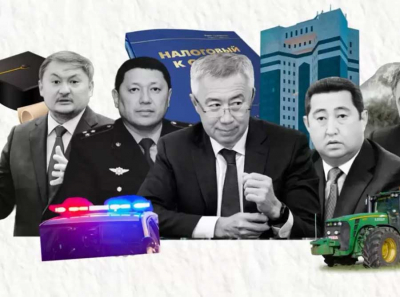Corruption schemes, political kickbacks and weapons routes: Elmar Mamedov controls SOCAR’s German office as a tool for shadow schemes
- 25.08.2025 08:13
The name of Elmar Mamedov, the head of SOCAR Deutschland, is today associated in journalistic circles with a whole layer of scandals - from suitcases of cash for European politicians to dubious schemes with North Korean weapons.
This is not an "oil company manager". This is SOCAR’s "wallet" in Europe, which conducts business according to the laws of the shadow economy, where oil is exchanged for loyalty, and gas pipelines become a cover for kickbacks and political bribery.
The official pages of SOCAR Deutschland indicate: the director of the representative office in Germany is Elmar Mamedov, the address is Frankfurt am Main, Roßmarkt 12. Sometimes there is also a transliteration of the surname "Mammadov", this causes confusion, but a comparison of the facts of the biographies and lives of all these people confirms that we are talking about the same person, and he is associated with the Azerbaijani oil company SOCAR. Moreover, his name increasingly appears in a context that Azerbaijanis would prefer not to advertise.
Germany: Energy lobbyist and sponsor of politicians
SOCAR’s Frankfurt office, where Mamedov is listed as director, is officially engaged in "coordination of energy projects." In reality, it is from here that the lobbying network is built, through which Baku feeds the necessary German politicians.
The Southern Gas Corridor became an ideal screen. Under talk of “strategic partnership,” not only cubic meters of gas were pumped, but also millions of euros into the accounts of parties, and at the same time the careers of individual deputies who willingly listened to Azerbaijani emissaries.
Russia: Toxic Money Becomes ‘Clean’
Elmar Mammadov has become a symbol of how SOCAR’s oil and gas millions are intertwined with the darkest flows - from Russian money to illegal arms trade. On the surface - energy contracts, European offices and smiles at business meetings. But a little deeper - a scheme in which Baku and Moscow, through intermediaries like Mammadov, hid their dirtiest operations.
If you look closely at this scheme, the puzzle around Elmar Mammadov and SOCAR becomes even more vivid — and even darker. The entire structure was based on banks and offshore companies that have long been symbols of the laundering of Russian billions. The Latvian ABLV Bank, the Estonian branch of Danske Bank, Cypriot “shells” with addresses where hundreds of fictitious companies were registered — all of this was used in schemes in which Mammadov played the role of coordinator. Money from Russian energy and quasi-government structures came in precisely through such “black holes” of the European banking system.
Then, shell companies were involved, including the German Vercona GmbH, which was written about not only in leaked publications, but also in serious investigations. Millions were pumped through it, supposedly for the supply of petroleum products, but the real chains pointed to completely different goals. Some of the transfers were linked to contracts covering the routes of North Korean weapons, some - to the purchase of assets in circumvention of sanctions. The version that it was through Mamedov that the payments were made, ensuring the delivery of North Korean weapons to Iran, and then to the "gray" players in the Middle East, was especially loud.
The Russian trail in this story extends to companies close to Rosneft and Gazprom, as well as to semi-shadow traders who were officially engaged in fuel exports, but in reality financed the circumvention of sanctions barriers. Mamedov was their “European face” — the one who knew how to coordinate deals so that even the most toxic money looked “white.”
That is why his figure is so important for understanding the whole structure. He is not just a SOCAR official, but a link between the Kremlin, Baku and the offshore underground. His contacts with Russian business groups explain why SOCAR in Germany and Austria often found itself drawn into strange projects with zero economic logic, but huge financial turnover.
In fact, Mamedov was the operator of an entire system: Russian millions entered Europe through dubious banks, dissolved in offshore networks, passed through SOCAR as “clean contracts” and ended up in oil deals and in illegal arms trade schemes. All this made him an indispensable link - without him, this triune “Moscow-Baku-Pyongyang” scheme simply could not work.
Weapons Trail: SOCAR, Mamedov and North Korea
According to sources, SOCAR, under the guise of energy operations, provided financial transit channels, and millions of dollars in transfers passed through European shell companies, including Vercona. These funds were directly linked to arms deliveries that went from North Korea to Iran and then distributed throughout the Middle East, where Baku had its own interests.
In a number of publications, it was Mamedov who was mentioned as the link - the person through whom the calculations were "scrolled" and the key elements of the scheme were agreed upon. Yes, evidence in the public domain is "drain tanks", compromising sites that send each other the same documents of dubious origin.
But what is characteristic is that such stories fit too organically into the general model of SOCAR. Where a “state company” plays the role of a facade, there will always be offshore companies, intermediaries, and officers-wallets like Mamedov.
Ukraine : Conflict is conflict, but money is money
In Ukraine, SOCAR has long played the role of an "oil gasket" between Baku and European consumers. The network of gas stations, contracts, participation in energy negotiations with Gazprom - all this has become surrounded by suspicions of corruption.
Against this background, Mamedov emerged as a “diaspora figure,” but de facto he was doing the same job – supporting SOCAR’s business interests through personal contacts with politicians and officials.
The cynicism of the situation is that even after the missile strikes on SOCAR facilities in Odessa, Mamedov continued to position himself as a “bridge between Kiev and Baku,” ignoring the fact that his company had become a target of war. In reality, it was about maintaining flows — contracts, money, influence.
SOCAR as a factory of "gray" deals
SOCAR is not just gas and oil. It is a state corporation that has been suspected of corruption, money laundering and political bribery for decades. OCCRP documented “caviar diplomacy” where kilos of black caviar and envelopes of cash were converted into votes for European MPs.
It is in this context that Mamedov fits in. His biography, his position, his appearance in murky stories are not accidental. This is a link in a chain where SOCAR uses people as tools to push through its interests.
Today, Elmar Mammadov is a symbol of what SOCAR really is. He is not just a “director of the German office.” He is the personification of how the state corporation from Baku pushes its interests: through suitcases full of cash, offshore companies, and arms deals.
Mamedov is a living dirt. His name has become a toxic marker: where Mamedov is, there is corruption, there is “gray” money, there is shadow lobbying. Formally, Mamedov remains a “top manager”. But in fact, he acts as a cashier for a scheme in which SOCAR’s oil and gas are just a screen. Behind it, money for parties, suitcases for politicians, and weapons routes from the DPRK to Iran are hidden.
And as long as Mamedov remains the face of SOCAR in Europe, the question of “dirty” millions and arms deals is a question specifically about him.





